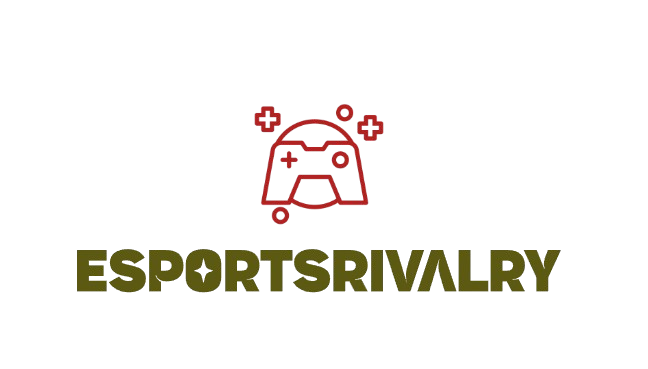
Best Programming Language for Game Development: Top Choices to Ignite Your Creativity
In the wild world of game development, choosing the right programming language can feel like picking a favorite child—impossible! With so many options available, it’s easy to get lost in a sea of syntax and frameworks. But fear not, aspiring game developers! The right language can turn your pixelated dreams into a reality faster than you can say “level up.”
Best Programming Language for Game Development
Game development encompasses various disciplines including programming, design, art, and storytelling. Success in this field hinges on the ability to merge creativity with technical skills. Aspiring developers should consider platforms where their games can thrive, such as consoles, PCs, or mobile devices. Each platform presents unique challenges and opportunities that can influence the choice of programming language.
Programming languages provide the backbone for game mechanics, graphics, and player interactions. C++ remains a popular choice for high-performance games due to its speed and efficiency. Conversely, languages like C# and Python offer greater ease of use, making them suitable for beginners or indie developers. Engines like Unity and Unreal Engine leverage these languages, simplifying development processes and enhancing user experience.
Understanding the target audience also plays a crucial role in game development. Players expect smooth gameplay, compelling graphics, and engaging stories. Selecting the right programming language directly impacts these elements. Furthermore, it’s important to consider the community and resources available for each language. A strong community can provide valuable support and resources, easing the learning curve.
Developers who embrace the iterative process generate better outcomes. Frequent testing and feedback are vital to refining game mechanics and ensuring player satisfaction. As technology continues to evolve, keeping pace with emerging languages and tools is essential. This adaptability helps developers stay relevant and creates engaging games that resonate with players.
Factors to Consider When Choosing a Language

Selecting the right programming language for game development involves evaluating several key factors.
Performance
Performance is critical in game development. High-performance games often run on languages like C++ due to their ability to manage resources efficiently. Fast execution speeds lead to smoother gameplay, especially in graphics-intensive environments. Additionally, optimizing frames per second ensures a more immersive player experience. Games requiring real-time calculations benefit immensely from high-performance languages. Developers should also consider the target platform; consoles and PCs generally demand more robust performance compared to mobile devices.
Ease of Use
Ease of use significantly influences the learning curve for new developers. User-friendly languages such as C# and Python allow for quicker prototyping and easier debugging. A straightforward syntax reduces the time needed to grasp essential programming concepts. Furthermore, developers with limited experience often find simpler languages more accessible. An intuitive language makes it easier to focus on game design and mechanics rather than struggling with complex code. Ease of use can often dictate the initial success of a game development project.
Community Support
Community support plays an essential role in the development journey. A strong community surrounding a programming language often provides invaluable resources like forums, tutorials, and libraries. Developers can quickly find solutions to common problems through collaborative efforts. Well-established languages tend to have more comprehensive documentation, fostering better understanding among users. Access to a network of experienced developers encourages sharing knowledge and tools. Community support directly impacts learning capacity and problem-solving efficiency in game development.
Popular Programming Languages for Game Development
Game developers frequently choose programming languages based on performance, ease of use, and community support. Below are three popular options.
C++
C++ represents the gold standard for high-performance game development. Many industry-leading game engines utilize C++ to manage complex graphics and real-time processing effectively. It allows for fine-tuned control over resources, making it ideal for resource-intensive games like first-person shooters. Developers appreciate its flexibility and depth, though the learning curve can be steep for beginners. Tools like Unreal Engine serve as powerful platforms leveraging C++ for advanced game mechanics and stunning visuals, attracting professional developers seeking to create immersive experiences.
C#
C# is a popular choice among indie developers and those new to game creation. Well known for its user-friendly syntax, C# simplifies the coding process, allowing developers to focus more on creativity rather than complex programming details. Unity, a leading game engine, mainly uses C# for scripting, making it a go-to for cross-platform development. Many find that C# offers a balance of power and accessibility, enabling quick prototyping and iterative design. The strong community around C# provides valuable resources and support, enhancing the overall development experience.
Python
Python is increasingly gaining traction in the game development sphere due to its simplicity and versatility. Many beginners appreciate its clear syntax, which encourages learning without the intimidation of complex structures. Popular libraries like Pygame support rapid game development, facilitating entry for novice developers. While not traditionally used for performance-heavy games, Python shines in educational settings and smaller projects, fostering creativity. The language’s extensive range of resources and supportive communities contribute to its appeal, making game development more accessible to aspiring creators.
Emerging Trends in Game Development Languages
Game development languages are evolving rapidly, driven by industry needs and technological advancements. New languages are gaining traction, fostering creativity and technological growth. Languages such as Rust and Go have emerged, showcasing benefits in performance and safety, which attract developers aiming for cutting-edge applications.
Performance optimization remains a significant trend. Developers seek languages that allow for efficient memory management and reduced runtime errors. C++ continues to dominate high-performance gaming, yet modern alternatives like Rust offer strong performance while emphasizing safety and concurrency.
Cross-platform development tools reflect a growing trend in gaming. Unity, leveraging C#, and Unreal Engine, accented with C++, empower developers to create games adaptable for various platforms. This shift allows creators to reach wider audiences without duplicating effort.
Community-driven development is on the rise. Open-source languages encourage collaboration and provide extensive libraries, making it easier for newcomers to engage in game development. Developers increasingly rely on platforms like GitHub for support and resource sharing.
VR and AR gaming experiences are influencing programming language choices. Languages capable of integrating 3D graphics and real-time interactions, such as C# and C++, become essential for addressing these immersive experiences. Developers focus on languages that can handle the complexities associated with virtual environments.
Lastly, the impact of machine learning is undeniable. Game developers experiment with languages that support AI integration, enhancing player experience through smarter NPC behavior and adaptive gameplay. Python’s versatility positions it well for this application, streamlining the development process with established libraries.
Choosing the Right Programming Language
The landscape of game development languages is dynamic, reflecting both technological advancements and community needs. Keeping abreast of these trends empowers developers to make informed choices and enhance their game projects.
Choosing the right programming language for game development is a vital step that can shape the success of a project. Each language offers unique advantages tailored to different needs and skill levels. While C++ remains the powerhouse for high-performance games, C# and Python provide accessible pathways for newcomers and indie developers.
As the gaming landscape evolves, staying updated on emerging languages and trends is essential. Developers should embrace flexibility and community support to enhance their skills and game quality. Ultimately, the best programming language is the one that aligns with a developer’s goals and the specific demands of their game.
